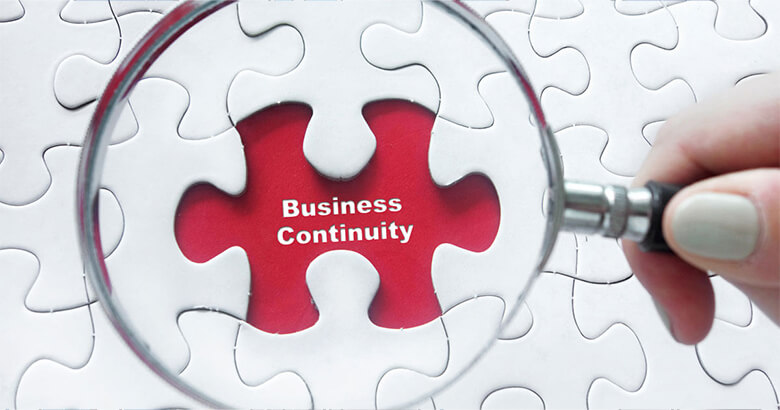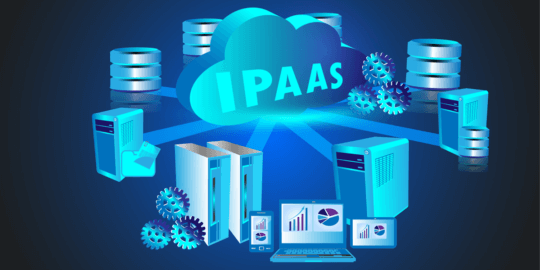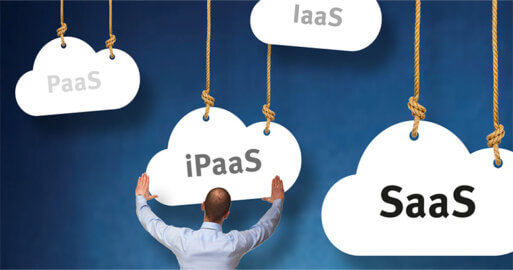iPaaS and Business Continuity Management

Business Continuity Management increases availability of systems as well as the independence from malfunctions. In this part of our blog series, you’ll learn how an iPaaS solution can help you ensure business continuity while making your business processes more efficient.
In Part I of our blog series, we explored the hybrid integration platform (HIP) approach and how an iPaaS solution can complement your cloud strategy. In this post we’ll cover the first reason iPaaS should be the heart of your cloud strategy.
Reason # 1: Business continuity is ensured
Even today, after all the data loss and security breaches in the press, many companies still don’t protect against damage resulting from system failure. And when data loss does occur, companies are often surprised.
The problem doesn’t have to be a disaster to be damaging. A relatively small event is enough to disrupt operations. For example, an incorrectly configured firewall after an update can paralyze all external communication for hours, because the cause of the error is undetected at first.
Another point to consider is that on-premises systems depend on remote access if physical access is restricted due to fire, water or storm damage – or more recently, Covid-19. However, remote access is usually not adequately provided.
iPaaS technology, an important component of many HIP approaches, provides a solution to this problem. It allows you to move infrastructure that is prone to costly disruptions into the public cloud. The iPaaS solution then takes care of the integration with the on-premises components.
Fault-prone and critical applications and processes become less dependent on on-premises operation. The data is stored externally, secured and is readily accessible at all times. Outside specialists take responsibility for smooth 24/7 operation.
Your company also benefits from improved security. Cloud providers usually offer much higher levels of security than companies have in house.

iPaaS vs. Enterprise Service Bus (ESB)
When it comes to business continuity, if you compare iPaaS and ESB approaches you’ll see that not all building blocks available in the HIP framework are equally suitable for all purposes. The processes in an iPaaS solution are usually more standardized, which can be seen as a disadvantage compared to traditional, locally operated ESB technologies. Highly individualized business processes are even less suitable.
If, on the other hand, a technology with a higher standardization framework is chosen, it can help to reduce process complexity that has grown over the years and often includes outdated solutions. The overall system becomes not only faster, but also more reliable.
It’s a bit like clearing out the basement workshop after many years to create more space and room to work. An iPaaS approach also makes it easier to control and monitor processes – because they are more standardized.
Outsourcing: more efficient processes through IT reorganization
iPaaS solutions and the associated processes and technologies offer even more. Not all data and systems in a company are equally important for keeping the business running. The rapid increase in data due to digitalization reinforces this trend.
Therefore, moving to iPaaS to ensure business continuity is a good opportunity to streamline company processes. Data and applications can be identified, prioritized and prepared for cloud migration within the legacy IT.
Although it requires time and effort at first, in the end you’ll find that few applications, processes and databases are critical. This can significantly reduce the amount of work involved and at the same time determine a strategically sensible migration path.
As a result, the most vulnerable and important processes should be backed up in the cloud first, while others can follow later if necessary. For example, invoices and other data from suppliers could be resubmitted on demand, but not customer orders in the online store.
Highly secure operations by SEEBURGER
SEEBURGER takes over all tasks for you that are required for secure and highly available operation of the integration platform.
The security functions of the SEEBURGER BIS platform and certified SEEBURGER operation guarantee the confidentiality and integrity of your data, processes and communication so that your business continuity is guaranteed at all times.
Read the complete story in E3 Magazine.
Thank you for your message
We appreciate your interest in SEEBURGER
Get in contact with us:
Please enter details about your project in the message section so we can direct your inquiry to the right consultant.
Written by: Uwe Heber
Uwe Heber is one of the two corporate information security officers at SEEBURGER and has been with the company since 2000. He has 22 years of experience in consulting, support, contract management, cloud operations and information security for enterprise application integration, EDI, B2B, MFT, API, ITSM and digital transformation - both on on-premises systems and from the cloud. He is involved in the ISO/IEC 27001, ISAE 3402 (SOC 1) Type 2 and TISAX certification for SEEBURGER Cloud Services and knows all about the intricacies of compliant data centre operations in international environments.





